Tracing the roadmap that necessitated the creation of Bao Books and later the Moving Forward project, writer Imen Zarouk curates a selection of titles telling stories on North African culture, exchange and movement.
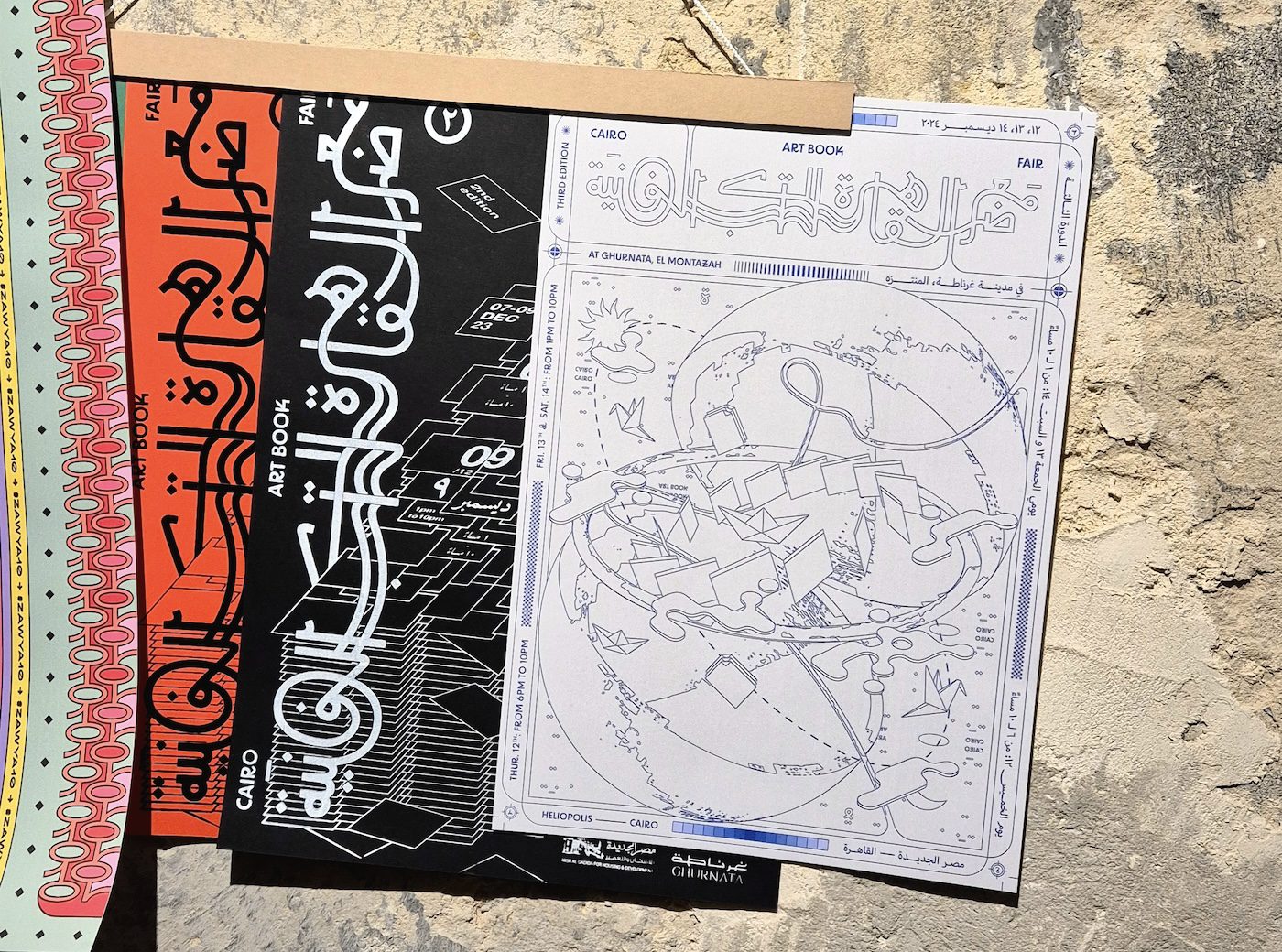
Photo: Mehdi Ben Temessek
In the historic neighborhood of Le Kram — a former cosmopolitan town whose identity has fluidified over the years — lies Bao Books, short for Books as Art Objects. This hybrid space — part bookstore, part design studio, and part creative lab — is where its founder Moez Akkari hopes to traverse and connect through new literary circuits. Despite sociopolitical changes and heavily restricted migration from South to North in the region, Bao Books still holds a crucial place in Tunis’ art ecosystem.
In 2020, Moez launched the project on Instagram, curating a selection of books with the help of close friends. At the same time, he published two titles under the Bao Books label and began taking part in international art book fairs, including those in Athens and Sharjah. Moez realized there was almost no connection between publishing houses in the Arab world and the broader region. He wanted to bring in books created by artists or published by independent presses from Algeria or Morocco, but importing a book made by an artist living just 150 kilometers from Tunis, in Annaba for example, required its routing through Europe. This detour incurs added costs, high interest and currency conversion rates, when the people involved are essentially neighbors.
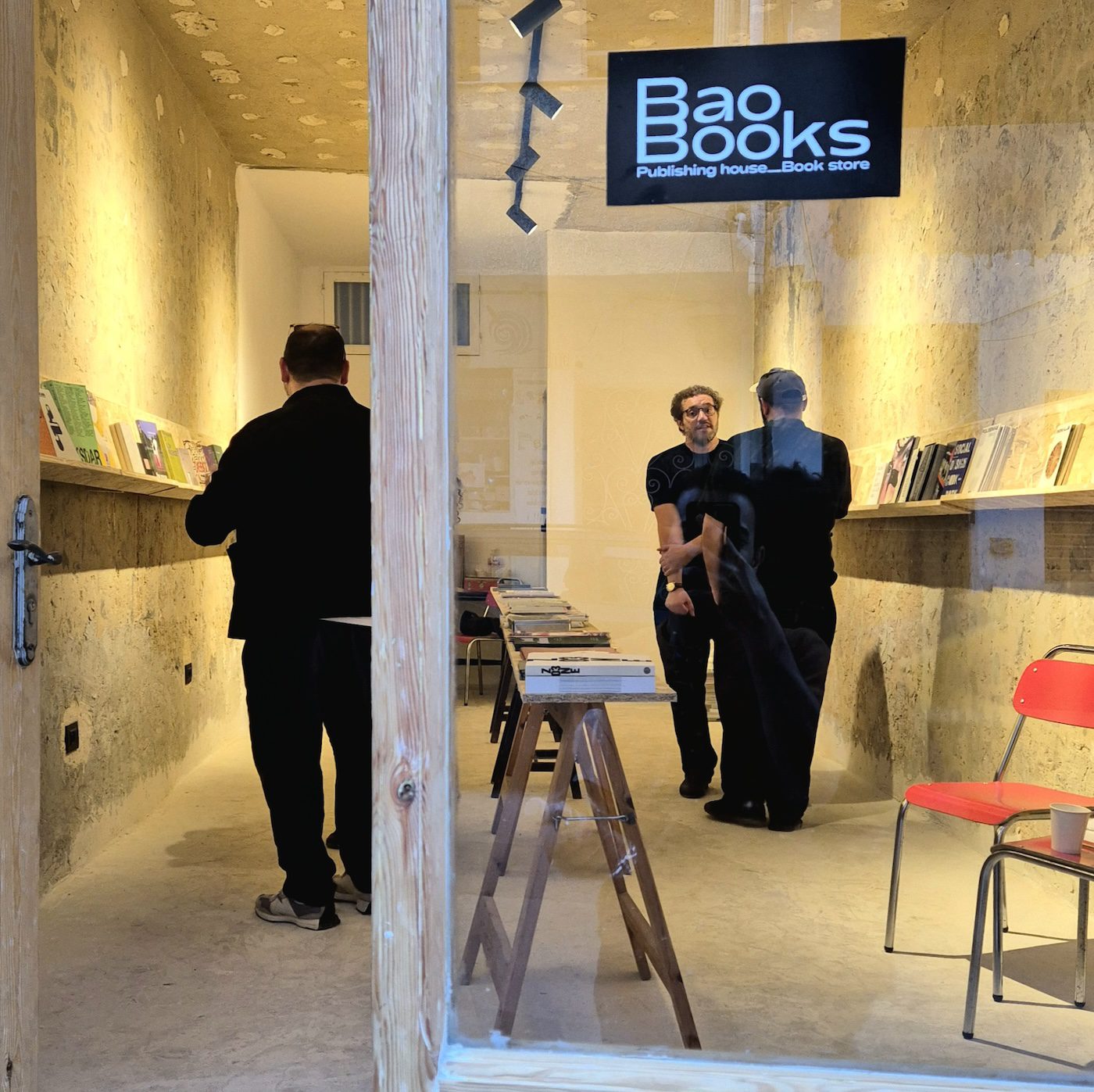
Photo: Mehdi Ben Temessek
Out of this frustration came the idea for Moving Forward, a project launched in collaboration with Esmat, an Egyptian publishing house run by Nour Safouri, who also organizes the Cairo Art Book Fair. The collaborators seek to offer book distribution across South West Asia and North Africa (SWANA), extending to Europe and beyond. Their aim is to develop concrete solutions for transport, simplify customs regulations, and build a network for exchanging books between countries in the Global South. To make this happen, they plan to establish two distribution hubs — one in Tunis, the other in Cairo — each tasked with collecting books from surrounding countries.
Bao Books is a labour of love, and its current catalogue is as eclectic and varied as the region in which it circulates. It tells a story of chance encounters, travels, visits to art book fairs, collaborations, and creative sparks. The following selection represents some of the works that speak to me most personally, while also offering a glimpse into the diversity of titles published by this young publishing house.
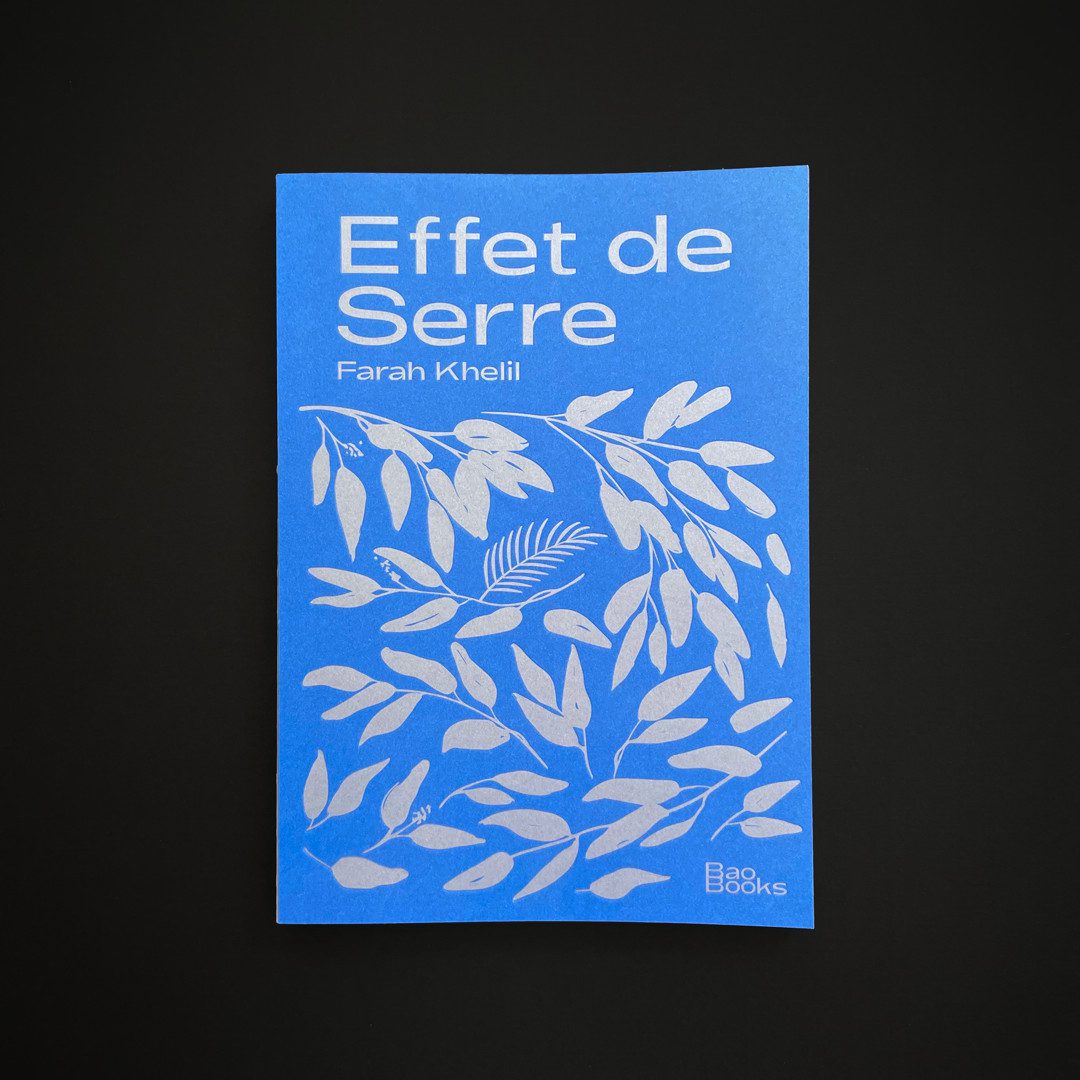
Photo: Boa Books
Effet de Serre (Greenhouse Effect) by Farah Khelil
This publication is the result of extensive research into the dialectic between the palm tree and eucalyptus, viewed through an eco-decolonial lens. More than just a theoretical study, it forms part of the renovation process for the municipal greenhouse at the Jardin des Plantes in Belvedere, Tunis. Farah interrogates the dominance of European heritage in both botany and art, proposing a re-reading of plant relationships as metaphors for post-colonial dynamics.
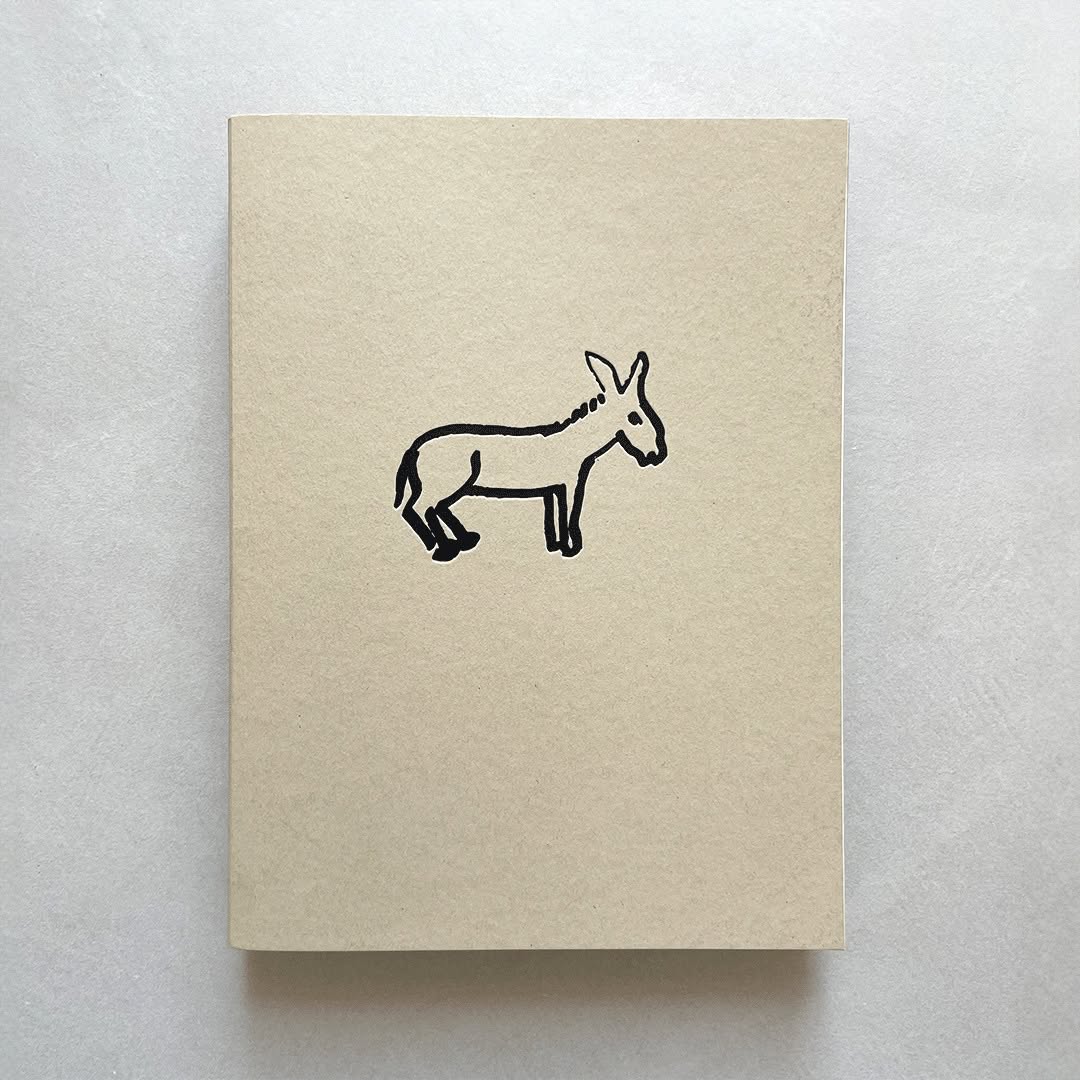
Photo: Boa Books
Sometimes You Have To Go a Long Way to Come Back A Short Distance by Abdullah al Saadi
This portrait of the artist as a nomad takes us into his whimsical and fascinating world. As one of the leading figures in conceptual art in the Arab world, al Saadi’s artistic practice is inseparable from his lifestyle — one governed by a deep connection to nature and a constant desire for exploration and introspection. The book presents an extensive selection of his works — paintings, drawings, elaborately crafted artist’s notebooks, categorized found objects, invented alphabets — along with previously unpublished texts and an interview with the artist. The publication is thoughtfully organized to reveal the underlying coherence of his creative practice in all its forms.
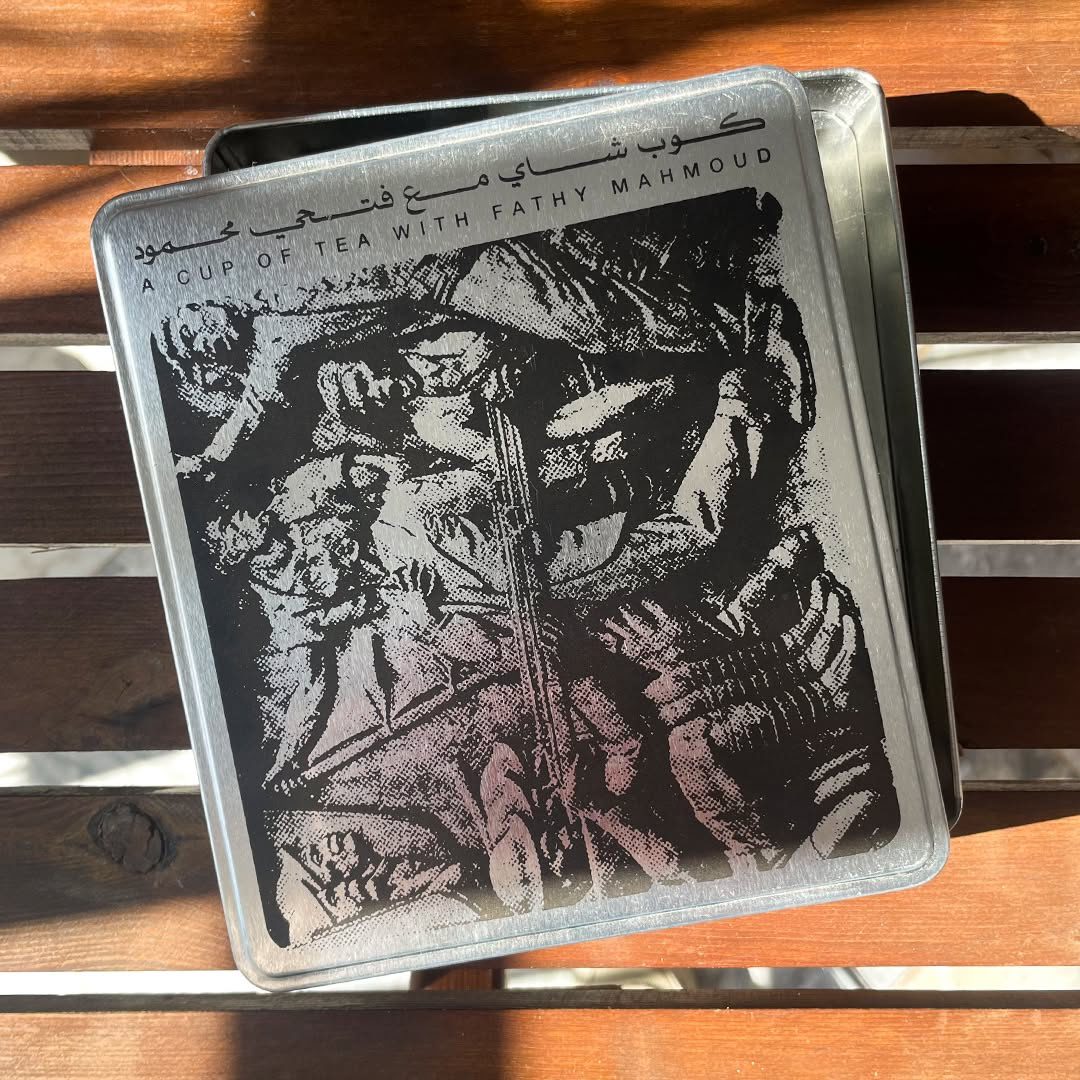
Photo: Mehdi Ben Temessek
A Cup Of Tea With Fathy Mahmoud
It all began with a teacup signed by the artist and industrialist Fathy Mahmoud, creator of some of the most iconic statues in Cairo and Alexandria. Founder of a porcelain factory, he designed the very cup that inspired sculptor Yasmine El Meleegy to delve into his work and legacy. Her interest led her to write him letters, a correspondence now preserved in a book stored inside a specially crafted box.
Imen Zarrouk writes about contemporary art from Tunisia, engaging with questions of cultural positioning and artistic networks across North Africa and beyond.
INSIDE THE LIBRARY
C&’s second book "All that it holds. Tout ce qu’elle renferme. Tudo o que ela abarca. Todo lo que ella alberga." is a curated selection of texts representing a plurality of voices on contemporary art from Africa and the global diaspora.
More Editorial